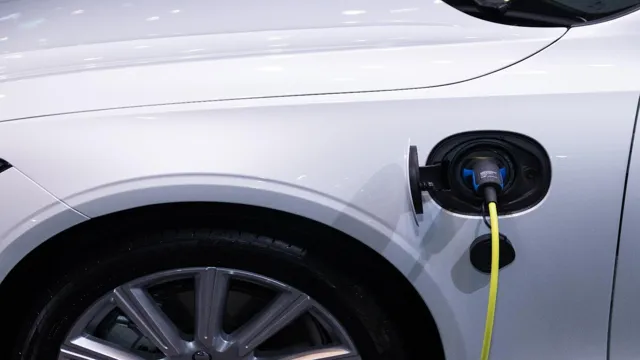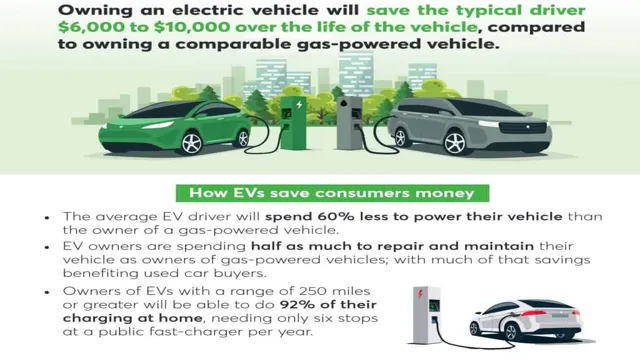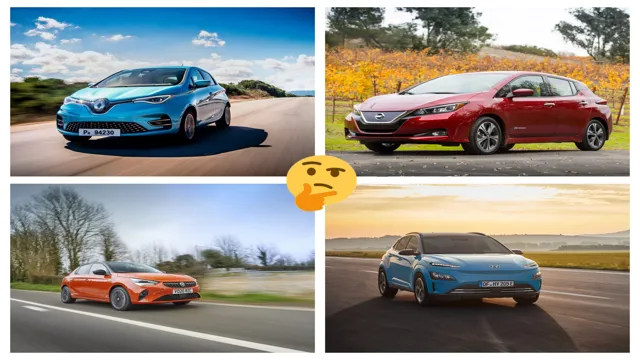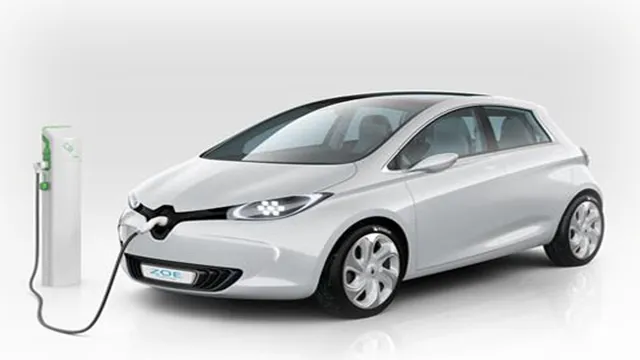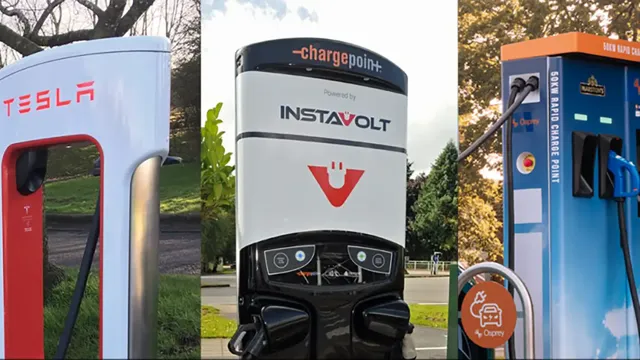Switch to a Greener Future: A Complete Guide to Purchasing the Perfect Electric Car
Looking to make the switch to an electric car? The idea of transitioning to an electric car can be daunting, especially if you’ve been driving gas-powered vehicles all your life. While there is certainly a learning curve, there are a lot of benefits to electric cars, such as their lower carbon footprint and long-term cost savings. But where do you even begin when it comes to buying an electric car? With so many models and options out there, it can be overwhelming to choose the right one for you.
That’s where this comprehensive guide comes in. In this guide, we’ll take you through everything you need to know when it comes to buying an electric car. From understanding the basics like charging and range, to exploring important factors such as battery life and resale value, we’ll cover it all.
We’ll also discuss the different types of electric cars available, such as battery-electric, plug-in hybrid, and fuel cell, and help you decide which one might be best for your lifestyle and budget. Plus, we’ll share some smart buying tips and things to look out for when shopping for an electric car. So if you’re ready to make the move to a greener, more sustainable mode of transportation, keep reading.
This guide will arm you with the knowledge you need to confidently buy your first electric car.
Benefits of Owning an Electric Car
Looking to buy a car that’s eco-friendly and can save you money in the long run? An electric car may just be the perfect fit for you. Not only do electric cars emit less harmful emissions than traditional gas-powered cars, but they also offer significant monetary savings on fuel costs. While the initial cost of buying an electric car may be higher than a gas one, the savings in fuel and maintenance can more than make up for it in the long run.
Plus, many countries offer incentives such as tax credits or rebates for purchasing an electric car. With advances in technology, electric cars now offer comparable ranges to gas cars, making them a viable option for daily commutes and even long road trips. So, if you’re considering going green and saving some green, buying an electric car may just be the smartest choice you make for both you and the environment.
Environmental Impact
Electric cars have many benefits, particularly when it comes to the environment. One of the biggest advantages is that they produce significantly less greenhouse gas emissions than traditional gasoline-powered cars. This is because electric cars run on battery power, so they do not emit harmful pollutants like carbon dioxide and nitrogen oxides.
In addition, electric cars also reduce dependence on finite resources such as oil and gas. By using renewable energy sources like solar power or wind energy, owners of electric cars can further reduce their carbon footprint. Moreover, electric cars can also help improve air quality in urban areas, where pollution from vehicles can contribute to health problems such as asthma.
Overall, owning an electric car is a great way to lessen your impact on the environment while still enjoying the convenience of owning a vehicle.

Financial Savings
One of the biggest benefits of owning an electric car is the financial savings that come with it. While the initial purchase price may be higher than a traditional gas-powered vehicle, electric cars have significantly lower operating costs. For one, the cost of electricity is much cheaper than gasoline.
This means that you can save hundreds of dollars a year on fuel costs alone. Additionally, electric cars require less maintenance and repairs since they have fewer moving parts compared to gas-powered cars. This means you can save money on oil changes, engine tune-ups, and brake replacements.
Furthermore, many states and municipalities offer incentives for electric vehicle ownership, such as tax credits, rebates, and free parking. Overall, owning an electric car can be a smart financial decision that saves you money in the long run.
Choosing the Right Electric Car
When it comes to buying an electric car, there are several factors to consider to ensure you make the right choice. First and foremost, take some time to research the different types of electric vehicles available and compare them. Look into their battery range, charging time, cost, style, and safety features.
You should also consider your daily driving habits and the environment you will be driving in. For instance, if you have a long commute, you will need a car with a higher range and faster-charging capabilities. Similarly, if you live in a city and mostly drive short distances, you may benefit from a smaller vehicle that is easier to maneuver and park.
Don’t forget to check for any available tax incentives or rebates to help offset the cost of purchasing an electric car. By doing your homework and comparing the options, you can ensure you get the right electric vehicle for your needs.
Range and Battery Life
When it comes to choosing the right electric car, two critical factors to consider are the range and battery life. The range determines how far you can drive before needing to recharge, and the battery life refers to how long the battery can function effectively before it needs replacement. It’s essential to select an electric car that meets your needs, whether you’re looking for a vehicle with a limited or extended range.
If you only use your car for daily commutes around town, you might not need a vehicle with an extended range. However, if you travel long distances regularly, you should consider an electric car with a longer range to avoid the inconvenience of frequent recharging. Additionally, battery technology is consistently evolving, and some electric cars come with more durable batteries than others, so it’s vital to look out for the brand’s warranty policy on battery replacements.
Overall, selecting the right electric car involves considering your driving habits and choosing a vehicle that aligns with them.
Charging Options
When it comes to choosing the right electric car, one of the biggest things to consider is the charging options. There are various ways to charge electric vehicles, and each has its own pros and cons. The most commonly used method is plugging the car into a home outlet or public charging station.
This method works well for shorter trips and daily commuting. However, for longer road trips, drivers may need to consider fast charging options that can replenish the battery quickly. Many newer electric cars are also equipped with regenerative braking, which recharges the battery while driving in traffic.
Additionally, some automakers offer home charging units that can be installed in a garage or driveway for convenient charging overnight. Overall, selecting the right electric car means finding one with the charging options that align with your lifestyle and driving needs.
Models and Features
When it comes to choosing the right electric car, it’s important to consider both the model and features that best fit your lifestyle and needs. There are several popular electric car models available, such as the Tesla Model S, Chevy Bolt, and Nissan Leaf, each with their own unique features. For instance, the Tesla Model S is known for its exceptional range and luxurious interior, while the Nissan Leaf excels in affordability and efficiency.
Features to keep in mind include charging time, range, safety technology, and available incentives and rebates. It’s also worth considering the type of driving you’ll be doing and what features will be most important. Do you frequently go on long road trips or commute in stop-and-go traffic? Are you interested in autonomous driving capabilities or a spacious cargo area? All of these factors can help you narrow down your options and choose the right electric car for you.
Electric Car Costs and Financing Options
If you’re thinking about buying an electric car, it’s important to do your research and consider all the costs involved. While electric cars come with a higher initial price tag, they can save you money in the long run on fuel and maintenance expenses. Additionally, there are financing options available, such as tax credits and incentives, to make purchasing an electric car more affordable.
It’s also important to consider factors like battery life and charging infrastructure when choosing an electric car. With a little bit of planning and education, buying an electric car can be a smart and environmentally-friendly decision.
Upfront Costs
When it comes to purchasing an electric car, you’ll need to consider the upfront costs involved. While electric cars may be more expensive than their gas-powered counterparts, they often offer a significant long-term savings in terms of fuel and maintenance costs. In addition to the cost of the car itself, you’ll need to factor in the cost of a home charging station and installation, which can range from a few hundred to a few thousand dollars.
If you’re concerned about the upfront costs, there are financing options available to help make the initial purchase more affordable. Many car manufacturers offer financing options specifically for electric vehicles, including leases and loans with lower interest rates. In addition, there are federal and state incentives available for purchasing electric vehicles, which can help offset the cost.
All in all, while the upfront costs may seem daunting, remember that in the long run, investing in an electric car can save you money and help reduce your carbon footprint.
Incentives and Rebates
Electric car costs and financing can seem overwhelming at first, but there are plenty of incentives and rebates available to help ease the burden. One popular incentive is the federal electric vehicle tax credit, which can provide up to $7,500 in tax credits for eligible electric car purchases. Additionally, many states offer their own incentives, such as rebates, tax credits, or reduced registration fees.
Financing options for electric cars have also become more widely available, with many car manufacturers offering special rates and leasing options. It’s important to do your research and compare both incentives and financing options to ensure you’re getting the best deal possible. Switching to an electric vehicle may require some upfront cost, but the long-term savings on gas and maintenance can make it a smart financial decision.
Financing and Leasing Options
Electric cars are becoming increasingly popular due to their low environmental impact and cost savings on fuel expenses. However, the initial cost of purchasing an electric car can be higher than a gasoline-powered vehicle. Thankfully, financing and leasing options are available to make owning an electric car more accessible.
Many banks offer special loans and financing options specifically for electric cars with lower interest rates and longer repayment terms. Additionally, many car dealerships offer leasing options with low monthly payments. Leasing an electric car can be an excellent option for those who don’t want to commit to a long-term purchase and want to take advantage of the latest technology advancements in the electric vehicle industry.
Overall, financing and leasing options make purchasing an electric car much more affordable and accessible for many people.
Maintenance and Repair
Electric cars are becoming increasingly popular due to their eco-friendliness and long-term savings when it comes to fuel costs. However, before deciding to buy an electric car, there are several factors to consider. One of the most important factors is maintenance and repair.
Unlike traditional petrol-powered cars, electric cars require less maintenance as they have fewer parts to repair or replace. However, when an issue arises, it is important to understand that repairs can be costly due to the specialist nature of the technology involved. Therefore, it is crucial to ensure that your electric car receives regular maintenance to minimize the likelihood of issues occurring.
Moreover, before purchasing an electric car, make sure to research the available maintenance and repair options in your area to ensure that you have access to the necessary support when required. By taking these steps, you can enjoy the benefits of owning an electric car without any unexpected surprises. So, If you’re looking for a comprehensive guide to buying an electric car, don’t forget to consider maintenance and repair.
Battery Maintenance
When it comes to owning a vehicle, taking care of the battery is crucial to its longevity and performance. An important aspect of battery maintenance is regularly cleaning the terminals to prevent corrosion build-up. This can be done easily with a mixture of baking soda and water and a wire brush.
Additionally, checking the battery’s fluid levels and adding distilled water if necessary can help prolong its life. If you notice any signs of battery malfunction, such as slow cranking or dimming lights, it may be time to have it tested or replaced. Taking these simple steps can save you the inconvenience and cost of getting stranded with a dead battery.
So, make sure to keep your battery in good condition and enjoy worry-free driving.
Warranty and Repair Options
When it comes to maintaining and repairing electronic devices, there are several options available. One of the most important considerations is whether or not the device is still under warranty. If it is, then the manufacturer will typically offer repair options to fix any issues that arise during the warranty period.
These options can range from simple repairs to complete replacements, depending on the severity of the problem. It’s important to note, however, that warranties typically have specific terms and conditions that must be met in order to be valid. If a device is no longer under warranty, there are still various maintenance and repair options available.
In some cases, repair shops may offer their own warranties or service agreements to cover any further issues that may arise. It’s important to research these options before selecting a repair service, as they can vary in terms of cost, coverage, and quality of service. Additionally, some repairs may be possible to do at home with the right tools and knowledge.
However, it’s important to consider the risks of attempting these repairs, as they can potentially cause further damage to the device. Overall, it’s important to weigh the various options when it comes to maintaining and repairing electronic devices. Whether it’s taking advantage of a warranty or seeking out a reputable repair service, the goal should be to ensure the device is functioning properly and efficiently.
By doing so, it can help prolong the life of the device and prevent the need for costly replacements.
Charging Your Electric Car
If you’re considering purchasing an electric car, understanding how to charge it is essential. There are three types of chargers: level 1, level 2, and level Level 1 chargers are the slowest, using a standard household outlet and taking up to 24 hours to fully charge your car.
Level 2 chargers are faster, and can charge your car in around 6-8 hours. These chargers require the installation of a 240-volt outlet in your garage or driveway. Finally, level 3 chargers, also called DC fast chargers, can charge your car up to 80% in just 20-30 minutes, but require special equipment and are not as widely available as level 1 and 2 chargers.
Understanding the types of chargers available and the charging times involved is important when deciding which electric car is right for you.
Charging at Home
If you own an electric car, charging it at home is likely going to be the most convenient and cost-effective option. All you need is a charging station, which can be installed in your garage or outside your home, as long as it is in a safe and accessible location. Some electric vehicles come with a charging cable that can be plugged into a regular outlet, but it’s recommended to get a level 2 charging station.
This allows for faster charging times, typically around 4-6 hours for a full charge. Plus, you won’t have to worry about overloading your home’s electrical system. It’s important to note that the cost of charging at home will vary based on your electricity rates and vehicle’s battery size.
However, in general, it’s much cheaper than filling up your car with gas. Overall, charging your electric car at home is a convenient and economical way to keep your vehicle powered up and ready to hit the road.
Public Charging Stations
As electric cars continue to gain popularity, many people are curious about how to charge them. Public charging stations are an increasingly common sight, and they offer a convenient way to top up your vehicle’s battery when you’re out and about. These stations can typically be found in a variety of locations, including parking lots, shopping centers, and even along highways.
Some electric car manufacturers also offer their own charging networks, which can be especially handy for long road trips. Charging your car at a public station is usually quite simple – you just need to plug in your vehicle and wait for it to charge. Depending on the type of charger, this can take anywhere from 30 minutes to a few hours.
Charging your electric car is just like filling up a gas tank, except you’re doing it with electricity instead. So, next time you’re out in your electric vehicle and you start to run low on battery, don’t worry – just look for a nearby public charging station and give your car the juice it needs to keep on going.
Final Thoughts on Electric Car Ownership
If you’re considering buying an electric car, there are quite a few things to keep in mind. Electric cars offer many benefits, such as being eco-friendly, quiet, and cost-effective in the long run. When it comes to the actual buying process, it’s important to do your research ahead of time.
Understanding federal and state incentives, charging options, and maintenance costs are all crucial factors to consider. Additionally, choosing the right make and model that fits your needs is key — do you prioritize range, space, or performance? It’s also important to factor in the cost of installing a home charging station, if necessary. Overall, buying an electric car may seem daunting at first, but doing the proper research and weighing your options can result in a practical and fulfilling investment for years to come.
Conclusion
In conclusion, buying an electric car is the smart and sassy choice for today’s environmentally-conscious consumer. With lower operating costs, minimal maintenance, and sustainable energy sources, owning an EV is a future-proof investment. The only downside? You might have to get used to people asking if you’re driving a spaceship.
But hey, who wouldn’t want to feel like a sci-fi hero cruising down the highway? So, get charged up and join the EV revolution – your wallet and the planet will thank you for it.”
FAQs
What are the advantages of buying an electric car?
There are several advantages of buying an electric car, such as lower fuel and maintenance costs, environmental benefits, and potential tax incentives.
What is the range of an electric car?
The range of an electric car varies depending on the make and model. Generally, they can travel between 100-300 miles on a single charge.
What kind of charging options are available for electric cars?
There are three types of charging options available for electric cars: Level 1 (120V), Level 2 (240V), and DC fast charging. Level 1 is the slowest, taking up to 20 hours for a full charge, while DC fast charging can take as little as 30 minutes.
What is the average cost of an electric car?
The cost of an electric car can vary greatly depending on the make and model, ranging from around $30,000 to over $100,000. However, many countries offer tax incentives and rebates to help offset the cost.

